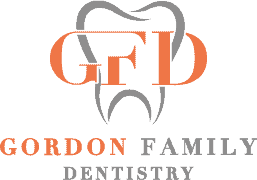Every year, millions of people around the world face the same struggle: to find a way to fill the gaps in their smiles. Fortunately, dentures present an effective solution for those looking to restore their smiles.
Dentures have the power to transform a person’s life, allowing them to regain their confidence and self-esteem. With the right dentures, you can enjoy a complete smile and experience the joy of eating, talking, and laughing without fear or embarrassment.
This article explores the various types of dentures available, the benefits of wearing dentures, and how to care for them.
What are Dentures?
Dentures are prosthetic devices used to replace missing teeth. They are custom-made for each patient, and the type of denture depends on the number of missing teeth and the condition of the patient’s jawbone and gums. Dentures are artificial teeth that can be either partial or complete. Partial dentures replace a few missing teeth, while complete dentures replace all the natural teeth.
In addition to dentures, dental implants can also be used to replace missing teeth. Dentures are made out of a combination of materials such as plastic, metal, and porcelain. Partial dentures are held in place by the remaining natural teeth, while complete dentures are held in place by the gum tissue and facial muscles. Complete dentures can be either permanent or removable. Permanent dentures are held in place by dental implants, while removable dentures are held in place by suction or adhesive.
Maintaining good oral hygiene with dentures is important, as gum disease is a common side effect of wearing dentures. Regular visits to the dentist are also recommended to ensure that the dentures fit properly and that the remaining natural teeth and gums remain healthy. With proper care and maintenance, dentures can help restore the natural smile and give back the patient’s confidence.
Types of Dentures
Different types of dental prostheses exist to provide cosmetic and functional support to individuals with missing teeth. Dentures are removable dental appliances composed of acrylic resin or metal clasps and denture teeth that are customised to fit the patient’s mouth. Conventional dentures are placed in the patient’s mouth after the remaining teeth are removed and the tissues have healed. Traditional dentures are also known as immediate dentures due to being fitted before the teeth are extracted. Immediate dentures offer the advantage of patients having teeth available during the healing process.
Upper dentures are constructed to fit over the upper gums and are often held in place by denture adhesive. Lower dentures are typically shaped like a horseshoe to accommodate speech and the movement of the tongue. Acrylic dentures are the most common type of dentures and are composed of acrylic resin and denture teeth. Metal clasps can be attached to the denture to secure it in the patient’s mouth. The metal clasps also provide additional support for the denture.
The type of denture prescribed for the patient depends on the number of teeth that are missing, the health of the patient’s mouth, and the patient’s lifestyle. Dentures can improve the function of the mouth as well as the patient’s smile. Dentures offer the advantages of restoring facial contours, improving speech, and helping the patient to eat and chew more efficiently.
Benefits of Wearing Dentures
Wearing dentures can provide multiple benefits for individuals with missing teeth. Dentures improve the ability to chew and digest food by replacing lost teeth and allowing food particles to be broken down more easily. Additionally, dentures can restore a person’s natural facial contours, allowing them to look more youthful and attractive. Dentures also help to ensure that the remaining teeth stay in place, as well as provide support for the facial muscles that control speech and give structure to the lips and cheeks.
Dentures are typically made from a combination of materials, including acrylic resins and metal frameworks. They are created to fit comfortably and securely in the mouth, with the gum tissue providing support for the denture. Dental implants can support some dentures, and these are known as implant-supported dentures. In some cases, dentures can also help preserve the bone and soft tissue of the mouth, preventing facial sagging.
It is important to ensure that dentures fit correctly and are regularly cleaned with a denture brush and fluoride toothpaste. Individuals are also advised to visit their dental prosthetist for regular checkups to ensure that the dentures remain well-fitting. This will help to ensure that the dentures are comfortable and functional, as well as enable individuals to maintain a beautiful and confident smile.
How to Care for Your Dentures
Proper care of dentures is essential for ensuring that they remain comfortable and functional. To maintain good oral health, it is important to clean them regularly with a denture cleaner and to brush them with a soft-bristled toothbrush. Additionally, wearing dentures should be supplemented with a balanced diet consisting of soft foods to prevent bone loss; this will also help to reduce bad breath. Wearing ill-fitting dentures can cause discomfort, and it is important to have them professionally adjusted or replaced if necessary. Additionally, using denture fixative or implant-retained dentures can help to ensure a secure fit.
Temporary dentures offer a quick solution for those who cannot afford modern dentures, but it is important to have them professionally fitted. The cost of dentures can vary depending on the materials used, but it is important to consider the long-term investment when selecting which type of denture to purchase. With proper care and regular maintenance, dentures can last for many years.
Caring for your dentures is an important part of maintaining your oral health and keeping your smile looking beautiful.
Adjusting to Life with Dentures
Adapting to the presence of a prosthetic dental appliance may be a challenging experience. Dentures are a popular solution to the issue of missing teeth, providing a custom-fitted replacement that is designed to function similarly to natural human teeth. However, the process of fitting dentures and how to properly care for them may be unfamiliar to many. Fortunately, with some understanding of the process and a few simple steps, adapting to life with dentures can become a smooth experience.
The process of fitting dentures begins with a dental impression, which provides a template for the prosthetic to be moulded. Depending on the individual’s needs, the dentist may also need to provide a bridge or a dental implant in order to ensure proper stabilisation of the dentures. Once the prosthetic is created, the dentist will fit the dentures into the patient’s mouth. The fit of the dentures is important in order for the appliance to function properly and to ensure the patient’s comfort.
Despite their differences from human teeth, dentures still require daily cleaning in order to ensure proper hygiene. Soft-bristled brushes are the best tool for cleaning dentures, as they are gentle enough not to damage the appliance. Patients must also take care with their dentures when eating, as biting with too much force may cause the dentures to break. Additionally, a human body may require some time to adjust to dentures, as bone remodelling in the area of the prosthetic may occur.
Having dentures can provide a sense of comfort and confidence to individuals who have lost their teeth, so it is important to take the necessary steps to ensure the process of fitting dentures is a successful one. With the help of a dentist and a little patience, having dentures can be a great experience. Additionally, many dental insurance plans cover the cost of fitting dentures, so be sure to check with your insurance provider.
Alternatives to Dentures
Individuals with missing teeth have a range of options to choose from when it comes to tooth replacement. Dentures are a great choice for full or partial tooth replacement, providing benefits such as improved speech, better nutrition, and enhanced facial structure.
However, there are alternatives to dentures that can be considered, which include:
- Dental Implants: Dental implants are a permanent solution that can be used to replace a single tooth or multiple teeth and are secured to the jawbone.
- Bone Grafting: Bone grafting is a surgical procedure used to replace lost bone so that a dental implant can be securely placed.
- Dental Bridges: Bridges are the dental appliance that is attached to adjacent teeth and used to replace missing teeth.
Each of these alternatives to dentures has its own benefits and drawbacks. Dental implants are a permanent solution that can last a lifetime but also require surgery and a longer recovery time. Bone grafts are necessary for some individuals before dental implants can be placed, but they require a longer recovery period and can be expensive. Bridges are a non-surgical solution, but they are not a permanent solution and may need to be replaced more often than dentures.
No matter which option is chosen, it is important to keep dentures clean and well-maintained. A denture cleanser should be used to keep dentures free from bacteria, and denture glue or a denture reline can be used to keep the dentures secure.
In this way, individuals can find the best solution to their dental needs and ensure they are always smiling.
Finding the Right Dentures for You
Finding the right dental prosthetic can be challenging for individuals requiring tooth replacement. Denture patients should understand their options and be sure to find the best fit for their needs. Dentures come in a variety of styles, ranging from cosmetic dentures to economy dentures. The type of denture selected will depend on individual needs and preferences.
To ensure proper care and maintenance, denture patients should invest in a soft denture brush and use a mild denture cleanser or denture with toothpaste to clean the denture surface regularly. It is also important to check with dental insurance providers to determine if any of the cost associated with dentures is covered.
In some cases, surgical intervention may be needed to restore lost teeth. Depending on the situation, dental implants, partial or full dentures may be recommended. Chrome dentures are the most durable and provide a natural look and feel. Cosmetic dentures are also available for those who want a more aesthetically pleasing look.
Finding the right dentures for you is an important part of the process. Discussing your needs with a dentist to determine the best option for your situation is important. With a dental professional’s help, you can ensure you get the dentures that best suit your needs.
Key Takeaways
Dentures are an important part of many people’s lives, providing a complete and beautiful smile. They come in a variety of shapes and sizes, and with proper care, they can last for many years. Adjusting to life with dentures may take some time, but with dedication and patience, one can soon enjoy the benefits they bring.
As the old adage goes, “A smile is worth a thousand words”, and dentures can help you make those words come to life. Finding the right dentures for you is important in achieving a beautiful and lasting smile.
A repair or replacement should be sought as soon as possible to restore function and aesthetics; the continued wearing of broken dentures results in unnecessary intra-oral tissue irritation, which may increase the risk of infection and other pathologies, including malignancies.
If you’re looking for a reliable and experienced dentist to help you find the perfect dentures for your smile, look no further than Gordon Family Dentistry in Gordon, NSW. Our qualified team of dentists in Gordon will be delighted to provide you with all the information and advice you need to make an informed decision about your dentures. With their help, you can have the beautiful smile you’ve always dreamed of in no time!

